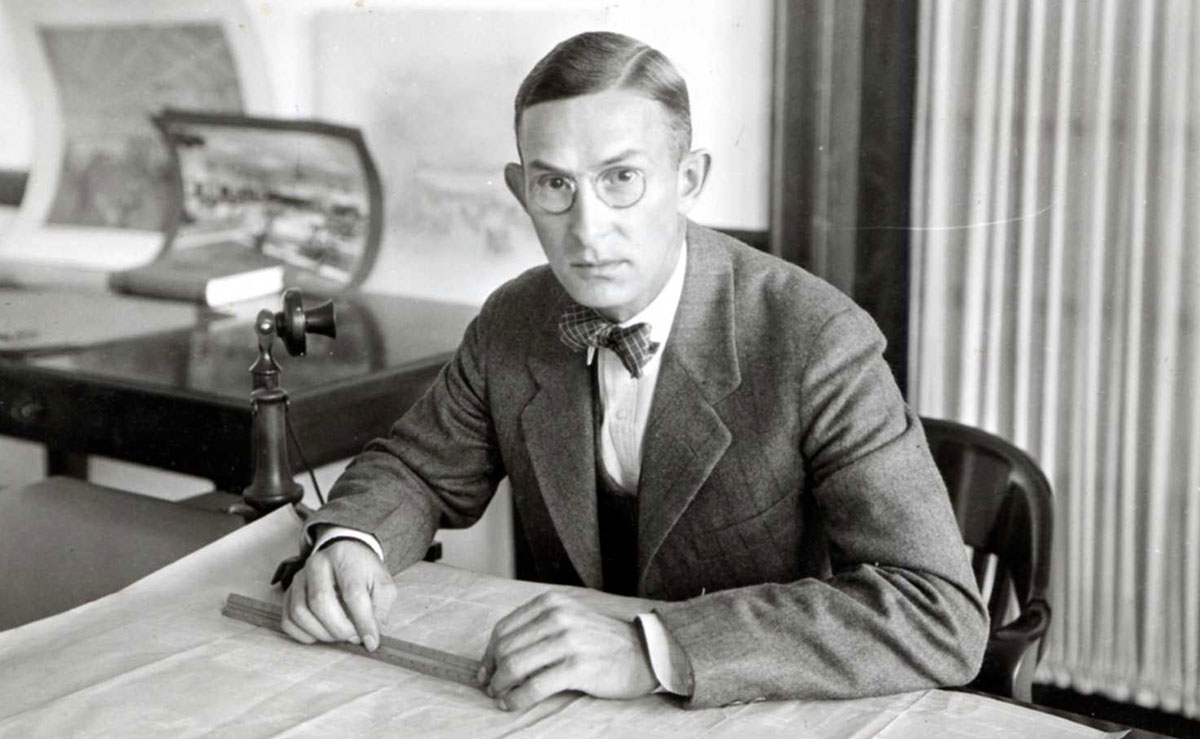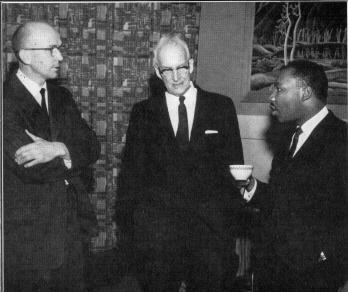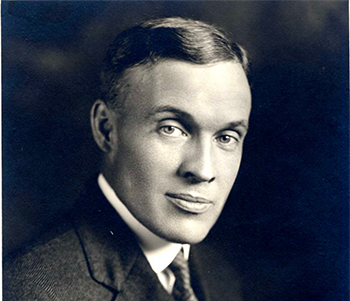Old Gold: Religious Studies' Long Association with UI
 PHOTO: F.W. Kent Collection of Photographs, Faculty series, UI Archives
Rufus H. Fitzgerald, an early proponent of the School of Religion, circa 1930.
PHOTO: F.W. Kent Collection of Photographs, Faculty series, UI Archives
Rufus H. Fitzgerald, an early proponent of the School of Religion, circa 1930.
Religious education was not new to the State University of Iowa when the School of Religion was established in 1927. Attendance at vespers, for example, was expected of students for many years during the 19th century, and courses pertaining to the study of certain religions were offered for credit during the early 20th century before the formation of the school.
 PHOTO: 1960 Hawkeye yearbook, UI Archives
The Rev. Dr. Martin Luther King's visit to the Iowa Memorial Union on Nov. 11, 1959, was sponsored by the School of Religion.
PHOTO: 1960 Hawkeye yearbook, UI Archives
The Rev. Dr. Martin Luther King's visit to the Iowa Memorial Union on Nov. 11, 1959, was sponsored by the School of Religion.What was new was the concept of organizing such a formalized degree-granting program at a public university. Iowa was the first such institution in the U.S. to do so. Today, the Department of Religious Studies in the College of Liberal Arts and Sciences, as the school is now known, ranks among the nation's 25 leading programs, according to theologydegrees.org.
Before going any further, Old Gold should clear up a common misconception. The university has not been, nor is it now, the home of a theological seminary. Instead of offering, say, a master of divinity degree, the university offers undergraduate and graduate degrees in religious studies.
The distinction is important, particularly in the context of a tax-supported institution. As Stow Persons wrote in The University of Iowa in the Twentieth Century: An Institutional History, "Religious courses simply assured a place for religious studies alongside the various secular disciplines. ... The [approach] adopted to justify religious courses in a public university—studying about religion—tacitly acknowledged the not so subtle distinction between religion as lived and religion as perceived."
To some, the coexistence of science and religion at an institution of higher learning may seem paradoxical. Since its inception, however, the Department of Religious Studies has maintained its role of service in the realm of research and instruction. This was, in essence, how the university's administration envisioned the program when President Walter Jessup (34LITTD) appointed a Committee on Religious Education in 1921. The committee secured funding from the Rockefeller Foundation and other private sources to launch the school, with direction provided by Rufus Fitzgerald, secretary of the campus YMCA chapter. (Fitzgerald would later serve as director of the Iowa Memorial Union and the School of Fine Arts.) Its first director was M. Willard Lampe, who served from 1927 to 1954.
 PHOTO: F.W. Kent Collection of Photographs, Faculty series, UI Archives
M. Willard Lampe, the first director of the School of Religion, 1927.
PHOTO: F.W. Kent Collection of Photographs, Faculty series, UI Archives
M. Willard Lampe, the first director of the School of Religion, 1927. In its early years, the program relied upon sectarian gifts to financially support faculty representing Protestant, Catholic, and Jewish faiths, a practice intended to maintain the appearance of separation of church and state. The practice, however, brought its own set of problems. Funding from outside sources in some cases meant that donors could assume responsibility for the hiring and firing of faculty with no approval or participation by the college or administration.
Critics also expressed concern about the consistency of faculty and whether they met the academic qualifications that would be expected in any other setting on campus. By about 1940, all faculty and staff in the school were paid by university funds, or were supported by private funds with the understanding that the school would exercise its authority to hire and grant tenure. Endowed chairs or funded fellowships now account for four of the program's 16 active faculty.
Today the Department of Religious Studies is interdisciplinary, offering a broad and diverse curriculum of over 120 courses at the undergraduate level alone. They entail ethics, popular culture, environmentalism, human rights, gender and sexuality, politics, and anthropology, as well as its roots: studies of all major world religions.
Learn more: clas.uiowa.edu/religion/
